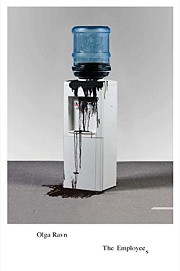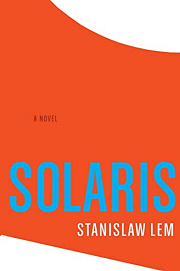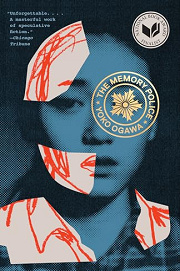Share your thoughts in a quick Shelf Talk!
The Employees by Olga Ravn
A deep-space workplace hums with routine—until new bio-objects onboard stir uncanny reactions in the crew. Told in fragments and testimonies, The Employees blends the eerie and the intimate, asking what it means to be human when the job demands something stranger.
Have you read this book? Share what you liked (or didn’t), and we’ll use your answers to recommend your next favorite read!
Love The Employees but not sure what to read next?
These picks are popular with readers who enjoyed this book. Complete a quick Shelf Talk to get recommendations made just for you! Warning: possible spoilers for The Employees below.
In The Employees, did you enjoy ...
... the way intimate documents and reports slowly expose inner lives within a larger mission?
This Is How You Lose The Time War by Amal El Mohtar, Max Gladstone
If what gripped you in The Employees was the chorus of numbered testimonies—the committee transcripts that let human and humanoid workers reveal themselves in fragments while the New Discovery objects hum in the background—you'll love how this novel unfolds entirely through clandestine letters. As Red and Blue trade missives across battlefields of time, their voices sharpen, swerve, and contradict, much like the crew statements aboard the Six-Thousand Ship. You get that same revelation-by-document thrill: personal confessions smuggled through official conflict, where what’s written becomes more dangerous—and more tender—than the mission itself.
... philosophical encounters with an unknowable alien presence that reframes what it means to be human?
Solaris by Stanislaw Lem
In The Employees, the inexplicable cargo from New Discovery quietly rewires the crew’s desires, memories, and sense of purpose, prompting those haunting interviews about work, love, and embodiment. Solaris channels that same searching mood: Kris Kelvin arrives at a station orbiting a living ocean that answers human consciousness with disturbing, intimate visitations. Like the crew’s fascination and dread around the ship’s artifacts, the scientists on Solaris face a presence that refuses to be reduced to data, forcing them—through their own "reports" and logbooks—to interrogate grief, memory, and the limits of understanding.
... the unsettling, dream-logic strangeness of investigating objects and zones that defy explanation under bureaucratic oversight?
Annihilation by Jeff VanderMeer
If the uncanny pull of those scent-laden New Discovery objects—and the corporate committee’s clinical follow-ups—hooked you in The Employees, Annihilation delivers that same atmosphere of institutional procedure meeting the inexplicable. The biologist’s field journal documents a mission into Area X where a tower/tunnel writes living words on its walls and the team’s identities dissolve under protocols and secrets. As with the shipboard interviews, official language frays around the inexplicable, and what begins as data collection becomes a bodily, disorienting transformation.
... an allegory of objects, work, and disappearance under a faceless authority?
The Memory Police by Yoko Ogawa
The way The Employees turns workplace questionnaires and cargo logs into a meditation on how objects shape our selves finds a powerful echo here. On an island ruled by the Memory Police, things—roses, ribbons, birds—vanish from collective memory; what remains are habits and jobs emptied out by edict. Like the crew whose testimonies circle the New Discovery artifacts and their effects, Ogawa’s narrator confronts how possessions, routines, and even bodies become sites of control. It’s the same cool, lucid dread of an impersonal system erasing meaning, one object at a time.
... spare, fragment-like scenes that accumulate mood and meaning more than plot in a melancholy speculative setting?
The Emissary by Yoko Tawada
If you loved how The Employees builds its world through brief, crystalline statements—the crew’s clipped anecdotes, sudden yearnings for Earth, the stray sensory notes about the cargo—The Emissary works in similar, luminous fragments. Through short, tender sketches of a frail child and his aging guardian in a post-disaster Japan, Tawada layers feelings and ideas rather than exposition. As on the Six-Thousand Ship, what lingers are sensations and small rituals: food, language, work; the spaces between scenes do the heavy lifting, letting you read the silence as much as the words.
Unlock your personalized book recommendations! Just take a quick Shelf Talk for The Employees by Olga Ravn. It’s only a few questions and takes less than a minute.





